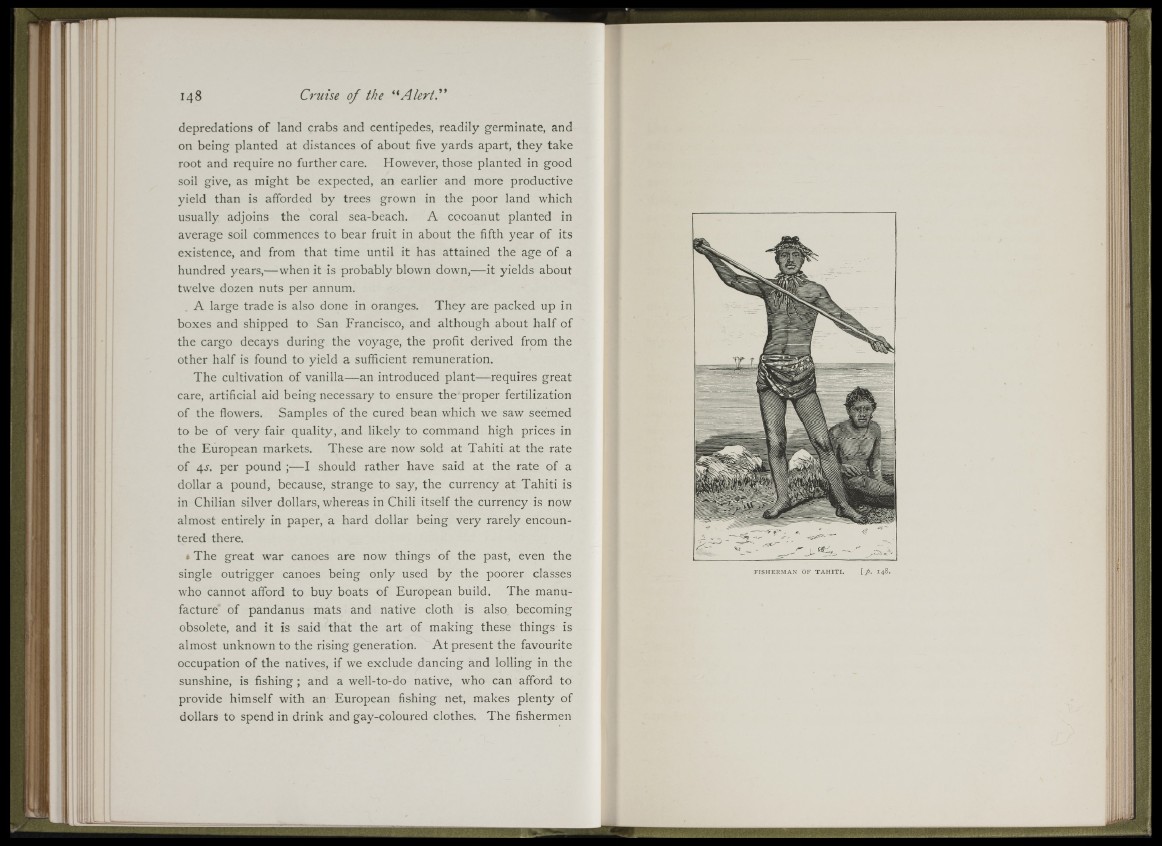
depredations of land crabs and centipedes, readily germinate, and
on being planted at distances of about five yards apart, they take
root and require no further care. However, those planted in good
soil give, as might be expected, an earlier and more productive
yield than is afforded by trees grown in the poor land which
usually adjoins the coral sea-beach. A cocoanut planted in
average soil commences to bear fruit in about the fifth year of its
existence, and from that time until it has attained the age of a
hundred years,— when it is probably blown down,— it yields about
twelve dozen nuts per annum.
A large trade is also done in oranges. They are packed up in
boxes and shipped to San Francisco, and although about half of
the cargo decays during the voyage, the profit derived from the
other half is found to yield a sufficient remuneration.
The cultivation of vanilla— an introduced plant— requires great
care, artificial aid being necessary to ensure the proper fertilization
of the fiowers. Samples of the cured bean which we saw seemed
to be of very fair quality, and likely to command high prices in
the Furopean markets. These are now sold at Tahiti at the rate
of 4s. per pound ;— I .should rather have said at the rate of a
dollar a pound, because, strange to say, the currency at Tahiti is
in Chilian silver dollars, whereas in Chili itself the currency is now
almost entirely in paper, a hard dollar being very rarely encountered
there.
3 The great war canoes are now things of the past, even the
single outrigger canoes being only used by the poorer classes
who cannot afford to buy boats of Furopean build. The manufacture
of pandanus mats and native cloth is also becoming
obsolete, and it is said that the art of making these things is
almost unknown to the rising generation. A t present the favourite
occupation of the natives, if we exclude dancing and lolling in the
sunshine, is fishing ; and a well-to-do native, who can afford to
provide himself with an Furopean fishing net, makes plenty of
dollars to spend in drink and gay-coloured clothes. The fishermen
F I SHE RMAN OF T A H I T I . [/. 148.